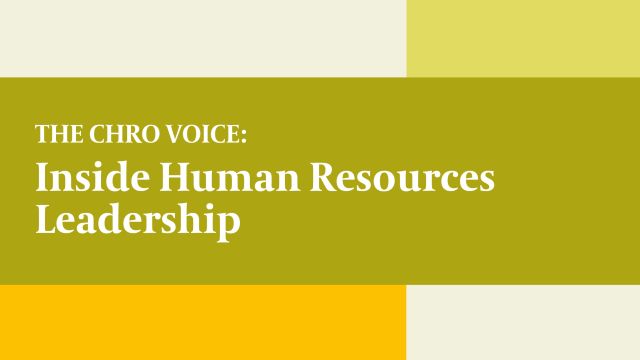The best HR people deeply understand the business they support. It’s great to know HR inside and out, but without business knowledge, we lose credibility.
 Jamie SpaethChief People Officer of Lantheus
Jamie SpaethChief People Officer of Lantheus
What does it take to infuse a legacy company with fresh thinking and bold momentum? For Jamie Spaeth, Chief People Officer at Lantheus, it starts with intentionality—about culture, leadership, and how people experience change. As the company undergoes rapid growth and integration following a series of acquisitions, Spaeth is helping shape what she calls “Lantheus 3.0,” a future-focused vision grounded in clarity, agility, and empowerment.
We sat down with Jamie for a candid conversation about what it means to lead HR during transformation.
How do you navigate the multi-faceted role of CHRO, from balancing the HR function to influencing broader business strategy and the leadership team?
How do you navigate the multi-faceted role of CHRO, from balancing the HR function to influencing broader business strategy and the leadership team?
It’s definitely a multi-faceted role—partnering with the CEO and executive team, leading HR, managing board relationships, and driving culture and organizational health. To strike that balance, I start with building a strong team. I reflect on my own strengths and make sure I’m surrounded by people who bring different perspectives and are willing to challenge my thinking. That’s where the best outcomes come from.
Delegation is key. I empower my direct reports to lead beyond their core roles. I often give them broader HR enterprise projects so I can stay focused on my responsibilities with the CEO and executive team.
Alignment and prioritization are also critical. When I joined Lantheus, I brought the HR team together for a two-day strategy session. We aligned on the business strategy and built an HR strategy with clear pillars. Once you have that alignment, it becomes easier to prioritize what really matters— what’s going to move the needle for the business.
I also try to create space for reflection. It’s easy to get caught up in the day-to-day, but we need to pause, look ahead, and make sure we’re spending our time wisely. Finally, we can’t forget to take care of ourselves. Whether it’s a walk, a podcast, or time by the ocean—whatever helps you recharge--make time for it. I encourage my team to do the same.
How do you demonstrate the business value that HR and the people function are bringing to the organization?
How do you demonstrate the business value that HR and the people function are bringing to the organization?
Fortunately, I joined Lantheus at a fantastic time of transformation and hyper growth. We've announced several strategic acquisitions and partnerships since early 2024. While some of that predates me, the executive team has doubled down on sharpening our strategic focus, tapping into the great talent we have, and thinking critically about how we scale for the future. Lantheus has been around for 70 years, but I’ve been intentional about bringing fresh perspective and operational agility to how we operate. Different parts of the organization are at varying levels of maturity, so we’re meeting each area where we are and helping the organization evolve.
A strong area where we add value is integration. I bring experience from 12 years at Shire, where we went through numerous acquisitions. At Lantheus, I serve on our integration steering committee—mostly made up of executive team members—and we’ve spent a lot of time shaping what we call “Lantheus 3.0.” One of our five value drivers is retention of talent and capabilities, and we’re taking a cross-functional approach that centers on employee experience and culture.
The second area is scaling the organization. We’ve sharpened our strategic focus and are prioritizing across a much larger portfolio. That includes investments in technology like SAP, building R&D capabilities, and launching cross-functional asset teams to manage development end-to-end. We’re upskilling current talent, bringing in new talent through acquisitions, and rethinking how we work.
Equally important is how we lead. We’ve worked with our executives to identify the leadership capabilities we need—like an enterprise mindset, systems thinking, and coaching. We’re investing in leadership development to ensure our people are equipped to lead through change. We’re especially excited about our new frontline leader program, designed to build foundational management and leadership skills for our newest people managers.
As you reflect on yourself, the organization’s needs, and the people around you, what leadership traits and qualities do you believe are essential for helping others thrive today?
As you reflect on yourself, the organization’s needs, and the people around you, what leadership traits and qualities do you believe are essential for helping others thrive today?
Our HR philosophy is anchored in three core principles that align seamlessly with the company’s value of “Let People Be Their Best” – a belief my team knows well and one I intentionally use to shape how we build and grow together:
- First, keep it simple. If it’s easy for us to understand, it’ll be easy for the business to understand. Complexity makes it harder to bring people along on the journey.
- Second, be flexible. This is something I embraced during the pandemic—meeting people where they are, especially across multiple generations in the workplace. Employees are essentially consumers of HR and what we offer, so we can’t rely on cookie-cutter approaches or assume one size fits all. I like to say we need to design for the masses but be flexible around the edges.
- Third, transparency. I’ve been fortunate to grow under fantastic HR leaders and business executives who modeled transparency. The more you know, the better you can do your job.
In addition to my personal philosophy, there are three traits I think are essential: agility, influence, and change management.
Agility is critical because the business environment is constantly shifting—market conditions, internal transitions, and more. HR needs to pivot with those changes. I regularly sit down with my team to review our priorities: Are they still relevant? Do we need to pause, stop, or shift direction? What we thought we needed in January might look different by June.
Influence is also key. When I took this role, our CEO, Brian, told me he was looking for someone who would speak up, share tough truths and offer perspective he might not always see. That stuck with me. It’s about having the confidence to contribute—not just on HR matters, but across the business—and being willing to offer a point of view.
Change management ties it all together. The business is evolving rapidly, and we need to be proactive in managing that change. That means unpacking transitions, making sure there’s a clear plan, and helping people move forward in a positive, aligned way.
As you look ahead to the next generation of HR leaders, what advice would you give them for their own development and career paths?
As you look ahead to the next generation of HR leaders, what advice would you give them for their own development and career paths?
Yes, this is something I hope—that if my team reads this article—they save it and hold me to it.
The first piece of advice is around what you might call business acumen or cross-functional expertise. I tell my team all the time: the best HR people deeply understand the business they support. It’s great to know HR inside and out, but without business knowledge, we lose credibility. That’s why I make it a point in team meetings to bring in business leaders to talk about upcoming programs, our pipeline, or how we’re viewed in the market. That kind of exposure is valuable at every career stage.
Second, diversify yourself. Many people don’t realize the importance of this until they reach senior levels. It’s great to find your niche within HR, but it’s just as important to build a well-rounded experience. Raise your hand for different projects, assignments, or initiatives—that diversity of experience helps you see how everything connects. I also encourage people to take an assignment in the business, if they can. I had that opportunity, and it gave me a completely different perspective on the organization and on HR’s role within it.
Last but not least: technology. The tech landscape is evolving fast. We all try to stay connected and think about how to use tech to improve the employee experience and make HR more effective. But there’s a big opportunity for the next generation to “manage up.” I love when early-career HR team members come to me with new tools, AI platforms, or software I’ve never heard of. It pushes me to try new things. So, I’d say the key areas are business acumen, cross-functional expertise, diversified experience, and being tech-enabled.
Obviously, there’s so much going on within Lantheus, the business, and the world. What are you most excited to be talking about as Chief HR Officer, and what’s top of mind for you right now?
Obviously, there’s so much going on within Lantheus, the business, and the world. What are you most excited to be talking about as Chief HR Officer, and what’s top of mind for you right now?
We’re in growth mode. We’ve had several recent acquisitions, and there’s a lot of integration happening. One area I’m especially excited about is culture. Another big initiative this year is a refresh of our performance management process.
Starting with culture: as part of our integration planning, we’ve been talking about “Lantheus 3.0.” One of the key areas we’re reimagining is culture. We’ve partnered with McKinsey to conduct their Organizational Health Index (OHI) survey, which helps us assess how healthy our organizations are across nine outcomes—like strategic clarity—and 43 organizational practices, such as accountability.
It’s been a great opportunity to look across the three organizations we’ve brought together – Lantheus and our two most recently acquired companies. Recently, we held an integration leadership meeting in Boston where we dug into the OHI methodology, reviewed the results, and began [shaping our cultural journey. We aligned on three priority areas: strategic clarity, role clarity, and empowering leadership. Reshaping cultural is a journey; we won’t solve it in a day and a half, but we are off to a fantastic start.
The second big focus is our performance management refresh. We want to evolve it into a more strategic process—not just a check-the-box exercise. We’re working to ensure it links business priorities with individual outcomes. We approached this with a strong change management mindset: we conducted internal research with employees and leaders to understand what’s working and what’s not, and we benchmarked externally to identify best practices.
We even used AI tools during the process, which was exciting. Most recently, we brought a prototype of the new approach back to employees and asked for feedback: “We heard you and here’s what we’ve built. How does this land/resonate with you?” Now we’re planning for a rollout in the second half of the year, which includes updating our technology, building skills through our frontline leader program, and developing the right competencies to support this launch.
So, yes, culture and performance management are top of mind right now, and I could talk all day about the work we’re doing on integration. Overall, it’s a highly energized and meaningful time at Lantheus. The future looks bright and transformative.







